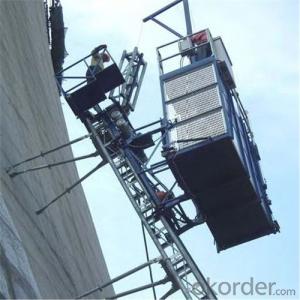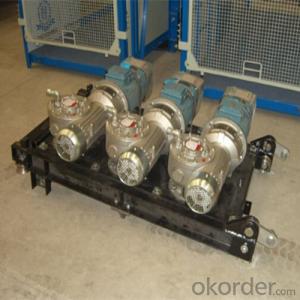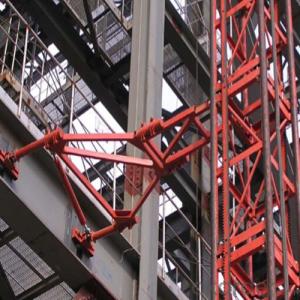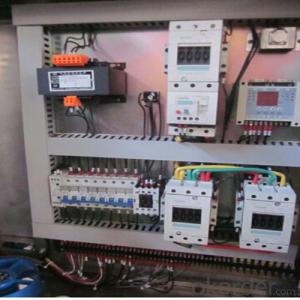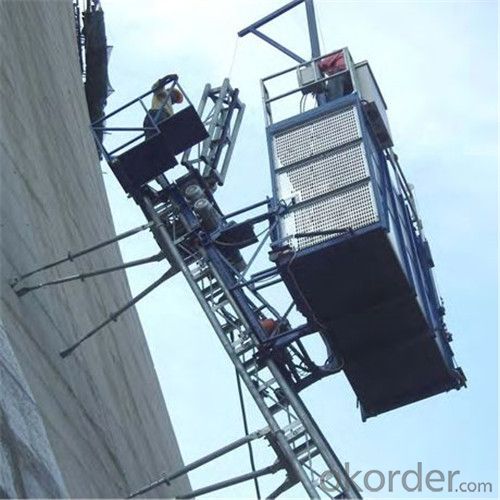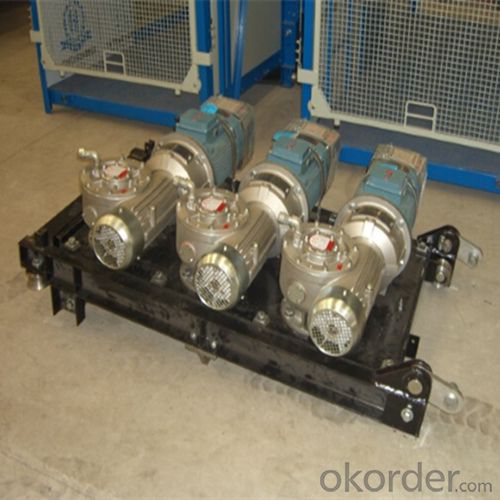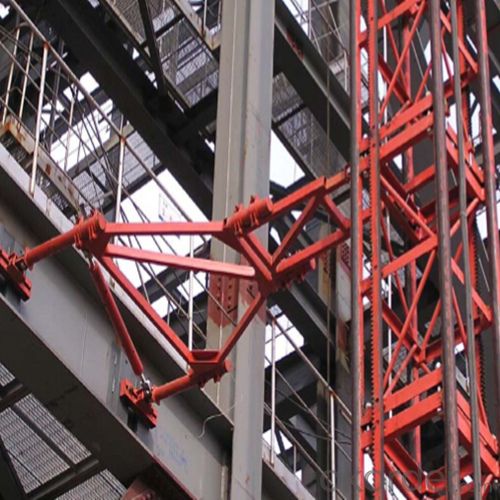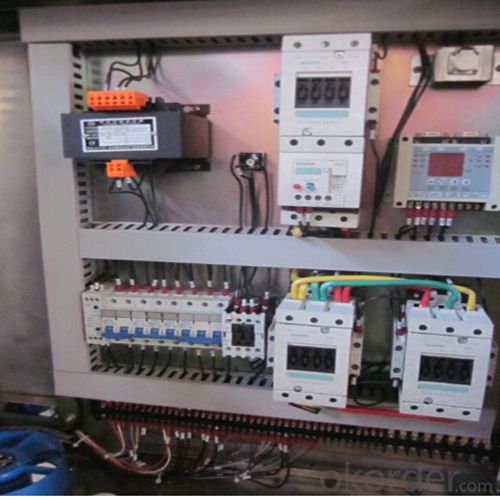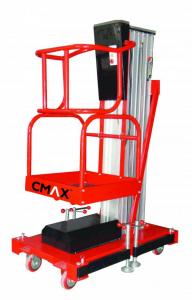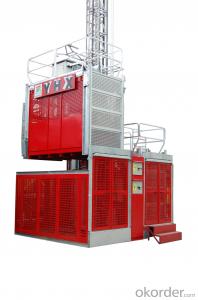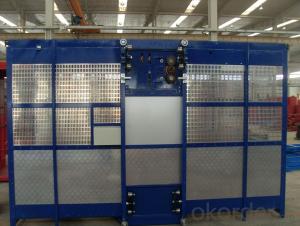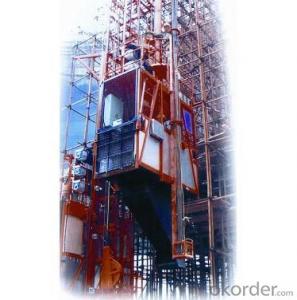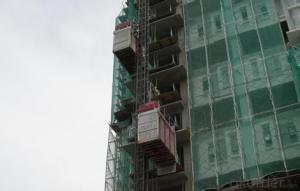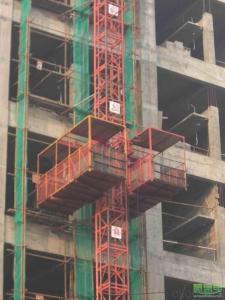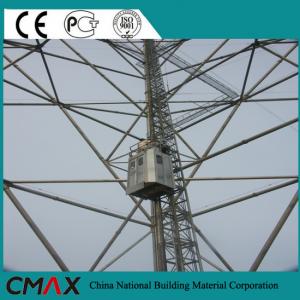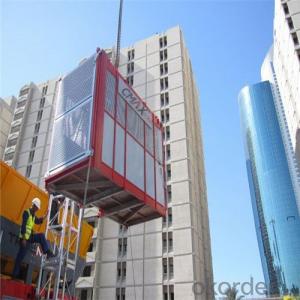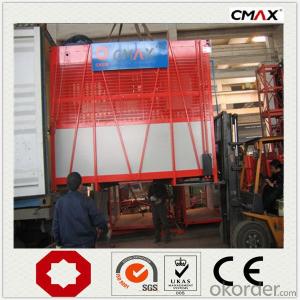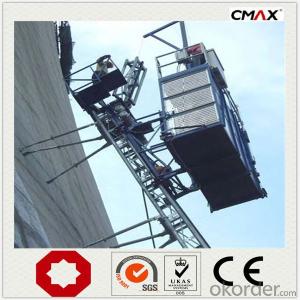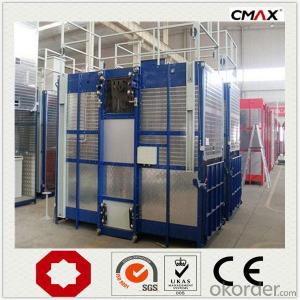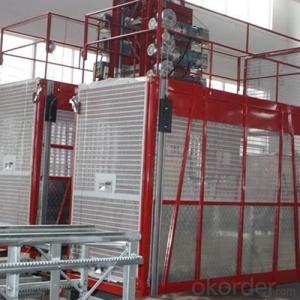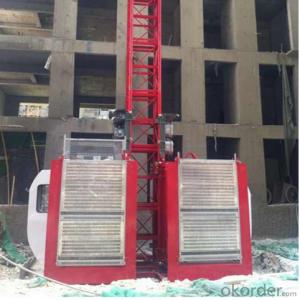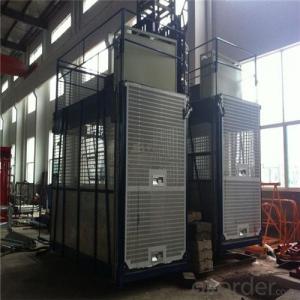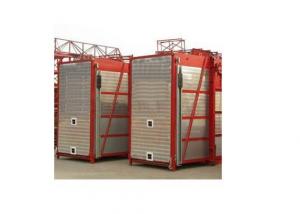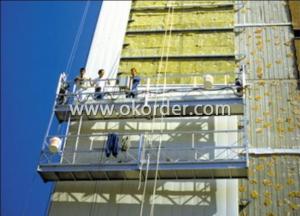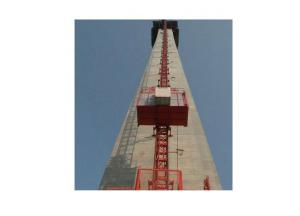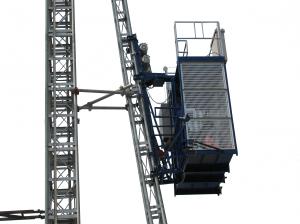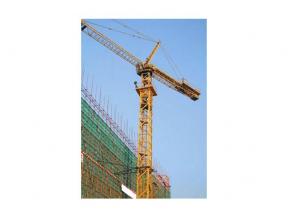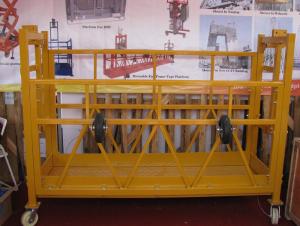Building Hoist Lifter SCD200 with Counterweight
- Loading Port:
- China main port
- Payment Terms:
- TT or LC
- Min Order Qty:
- 1 unit
- Supply Capability:
- 30 unit/month
OKorder Service Pledge
OKorder Financial Service
You Might Also Like
Structure of Building Hoist Description
Product: Building Hoist Condition: New Application: Construction
Payload(kg):2000 Lifting Speed(m/min):0~60 Motor Power(kw): 2*15
Safety Device: SAJ40-1.4 Cage: Single Counterweight: Yes
Certification: CE,ISO Place of Origin: China(Mainland) Model Number: Type:SCD200
Diameter of Pipe: 76mm Thickness of Pipe: 4.5mm, 6mm and 8mm Pipe type: welded or seamless
Packaging & Delivery of Building Hoist
Packaging Detail: Nude in Container Delivery Detail: 25-30days
Main Parts of Building Hoist
● Adopts the most advanced VF speed control such as Siemens, Schnerder and China famous brand device and microcomputer programmable logic controller.
● Stepless speed control helps eliminate the concussion during start up and braking, steady the operation process,
and ensures automated leveling.
● Adopts open loop V/Fcontrol; the speed control precision can reach ±2~3%. Realizes accurate low speed positioning of the hoist and avoid slipping during downward stopping of hoist.
● The VF system has current-restriction function, ensuring a small current when motor start up and reducing the concussion to power supply. It reduces the engery consumption and mitigates effects to on site electric equipments.
● The steadiness during running mitigates concussion to mechanical parts, reduces wears of rack, pinion and the brake
and prolongs the spare parts'life.
● The VF system also has the over voltage protection,low voltage protection, overcurrent, overload and anti-stalling protection functions,
● The system applies the special software for hoists developed by our company, making the operation more safe and
reliable.
Safety Limiter: Anti-roof collapse limiter, overload limiter, upper and lower travel limit
Building Hoist Images
CMAX Building Hoist
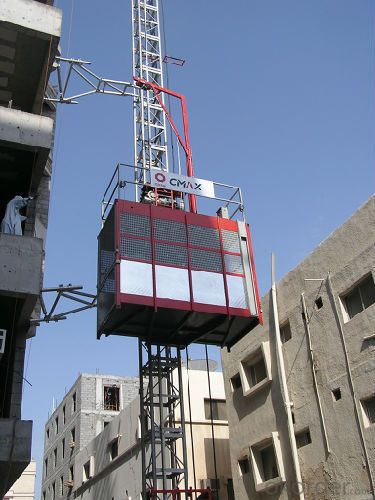
Mast Section
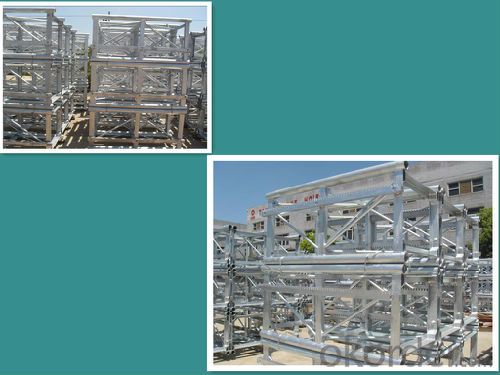
Building Hoist Specifiction
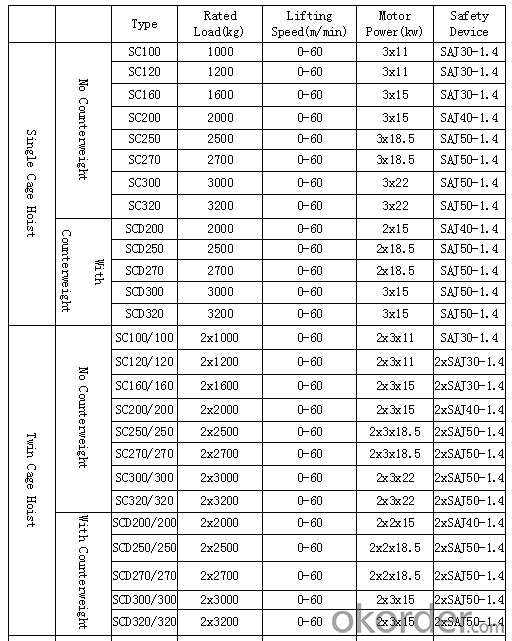
FAQ of Building Hoist
Q: What is the building hoist main purpose?
A: Building hoist equipped with double or single cabin to transport the materials and labors up and down. It's the ideal
construction equipment for vertical transportation in the field of construction.
Q: What is the advantage of CMAX construction hoist?
A: CNBM is a China-owned manufacturer and it has been listed in fortune globle 500. So CMAX is trustworthy. Besides, our hoists are tested well and have good reputation in worldwide. Reference can be offered from our customer.
Q: What is the main structure of building hoist?
A: The P/M construction hoist mainly contains metal structure, driving system, electrical control system, cable guide &
protection system, electrical top crane and safety device.
Q: What is the meaning of the building hoist’s code?
A: Take SC200/200 for example: “SC” stands for rack and pinion hoist, “200/200” stands for double cage and capacity
is 2 tons per cage. “SC200” stands for single cage and capacity is 2 tons.
Q:What is the loading for mast section in 40HQ container?
A: As for 650x650x1508mm mast section, it can be loaded 67pcs about 100meters.
- Q: This question asks for the method to determine the lifting capacity of a building hoist.
- <p>To calculate the weight that a building hoist can lift, you need to consider the hoist's rated capacity, which is specified by the manufacturer. This rating is based on safety factors and should not be exceeded. Check the hoist's specifications for its maximum load capacity. Ensure that the weight of the materials being lifted does not exceed this limit. Additionally, consider the hoist's mechanical condition, the strength of the cables, and the stability of the lifting points. Regular maintenance and inspection are crucial to ensure the hoist operates within its safe working load limits. Always follow the manufacturer's guidelines and safety regulations when using a building hoist.</p>
- Q: How does the construction lift fall without electricity
- This is not calculated according to the distance, it is calculated speed, when the anti-pendant achieves the rated speed, the pendant should be held automatically. It can't go on.
- Q: This question asks whether building hoists can be utilized in limited areas like rooms or tunnels.
- <p>Yes, building hoists can be used in confined spaces such as rooms or tunnels, but it depends on the specific design and size of the hoist. Compact and portable hoists are available for use in tight spaces. However, safety considerations, space dimensions, and the weight capacity of the hoist must be taken into account. It's crucial to ensure that the hoist is suitable for the confined area and that all safety protocols are followed to prevent accidents.</p>
- Q: What are the primary parts that make up a building hoist system?
- <p>The main components of a building hoist include the hoist machine, which is the driving mechanism; the hoist shaft, a vertical structure that houses the hoist; the lifting platform or cage, which carries materials and personnel; the mast or tower, providing support and stability; the counterweight, which balances the load; safety devices such as limit switches and brakes; the control system for operation; and the electrical system that powers the hoist. Additionally, there are guide rails, cables, and buffers that ensure smooth and safe operation.</p>
- Q: Is it possible to substitute an automatic lifting device with a manual one in construction projects?
- <p>While it is technically possible to use a manual lifting device in place of an automatic one for certain construction tasks, it is not generally recommended. Manual lifting devices are typically less efficient, slower, and can pose safety risks due to the physical effort required. They may also not meet the load-bearing requirements of heavy construction materials. Automatic lifting devices are designed for efficiency, safety, and to handle heavy loads, making them more suitable for construction work. It's crucial to adhere to safety standards and use appropriate equipment for the task at hand.</p>
- Q: Gear rack driven
- Driven by two or three worm gear reducers, the ladder cage is a load bearing unit, and gravity is carried by a rack. At rest, the force point is in the meshing of the gear and rack.
- Q: This question asks for the steps or methods to fix a building hoist that is not working properly.
- <p>To repair a malfunctioning building hoist, first, ensure the hoist is powered off and disconnected from any power source to ensure safety. Inspect the hoist for visible damage or loose parts. Check the motor, cables, and control panel for any signs of wear or damage. If the issue is mechanical, such as a stuck cable or a jammed pulley, disassemble the affected parts and clean or replace them as necessary. For electrical issues, inspect the wiring and connections for any shorts or breaks. Consult the hoist's manual for troubleshooting guides specific to the model. If the problem persists or if you're unsure about any steps, it's best to contact a professional technician for repair to avoid further damage or safety hazards.</p>
- Q: This question asks for guidance on selecting an appropriate building hoist, which is a type of lifting equipment used in construction.
- <p>Choosing a suitable building hoist involves considering several factors. First, assess the lifting capacity needed based on the weight of materials to be moved. Consider the hoist's speed and lifting height to ensure it meets project requirements. Evaluate the safety features, such as overload protection and emergency stop mechanisms. Check the hoist's durability and maintenance needs, as well as its compatibility with the building's structure. Consult with hoist manufacturers or rental companies for recommendations tailored to your specific project. Always prioritize safety and ensure the hoist complies with local regulations and standards.</p>
- Q: Can a building hoist be utilized for lifting objects that exceed manual lifting capabilities?
- <p>Yes, building hoists are specifically designed to lift and transport objects that are too large or heavy for manual lifting. They are commonly used in construction to move materials and equipment to various levels of a building. Building hoists are equipped with safety features and can handle substantial weight, making them an essential tool in construction projects where heavy objects need to be moved efficiently and safely.</p>
- Q: What is the need for the sc200/200 construction elevator cable?
- The company now USES 3X25 + 2x10 cables
Send your message to us
Building Hoist Lifter SCD200 with Counterweight
- Loading Port:
- China main port
- Payment Terms:
- TT or LC
- Min Order Qty:
- 1 unit
- Supply Capability:
- 30 unit/month
OKorder Service Pledge
OKorder Financial Service
Similar products
Hot products
Hot Searches
Related keywords
